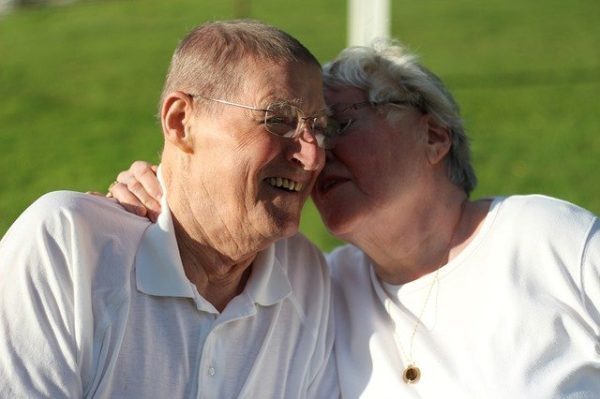We are all aging – every human being on the planet, and always one day at a time. That is an indisputable fact of life. It’s also a healthy and positive one, or it should be. But that depends on how we look at it. And how society has looked at that natural phenomenon has varied greatly among cultures and over time. In other words, while the process is immutable, attitudes toward aging are varied and they are constantly changing.
Not so long ago in this country the term “aged” (pronounced as one syllable when it referred to expensive cheese or fine wine, but as two syllables when it denoted people) seemed to carry with it a bit of a stigma. The connotation, if not the consensus, was that “the aged” were people who were frail and most likely needy or in failing health. The term conjured folks stooped over walkers or sitting side by side in rocking chairs on the porches of retirement homes. Some were then and some still are today. But recently the notion and fact of age have been put into a different, and more favorable and realistic, context. We at NFESH applaud that fact and think it is worth examining.
Attitudes toward aging and older individuals seem to be moving, at least incrementally, in a positive direction. Here are some of the examples that we find encouraging. Our previous blog referenced the scientific finding that, as a group, older individuals had better nutrition and eating habits than any other age cohort, with the exception of infants. The substance behind that finding is good for older people, good for the health care system, good for the economy, and good for society as a whole.
Speaking of society, overall attitudes toward the senior generation seem to be changing too. This was demonstrated by the official national policy of giving preference for COVID vaccines to individuals 65 and older before adults in younger age groups. The residents of nursing homes and long-term care facilities were first in line, a decision that demonstrated not just that such individuals were frail but also that their lives and health were valued and deserved priority treatment. Such might not always have been the case. We believe that both of those examples point to a significant and encouraging rethinking of what aging means, how it should be viewed and the way older individuals should be regarded and treated.
The definition of “old” is relative, of course. That being so we cannot resist making reference to last Sunday’s Superbowl, where an “old” (context, context, context) quarterback demonstrated beyond any doubt that age can in fact be just a state of mind. That was an emphatically demonstrated fact that could not be ignored by team loyalty or preference. There was another relevant fact associated with age and the big game as well. The head coaches of both teams are 68. Mature professionals, yes; old men, no.
Those coaches would most certainly have been considered youngsters by the Centenarian from the UK who was lauded and recognized across the globe over the past few months, and just prior to his death, for his physical energy and dauntless spirit as he leaned over his walker tirelessly pacing back and forth for hours on end to raise funds for charity. That’s not all he raised. At the same time that he inspired thousands of younger folks to dedicate some time and energy to serving others he also brought clear focus, across the international stage, to the folly of ageism.
It is time to work together to dispel some recent notions of aging as a negative or burdensome thing and to consciously restore the cultural norm that honors and respects those who have lived and learned and served long.
We owe it to them and to ourselves. After all, one by one and day by day everyone is getting older.


